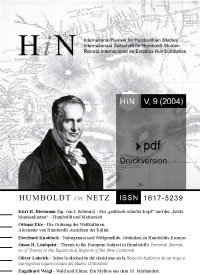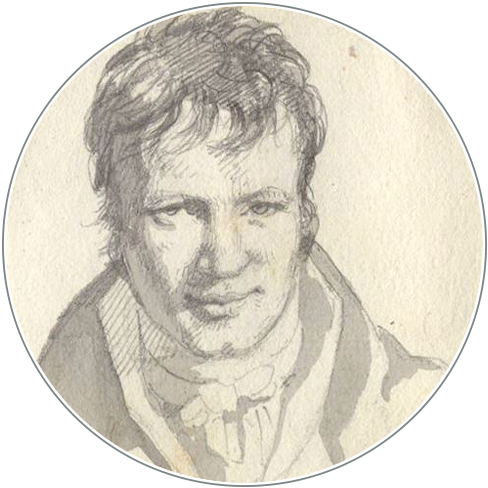“Under the influence of an exotic nature...national remembrances are insensibly effaced”: Threats to the European Subject in Humboldt’s <i>Personal Narrative of Travels to the Equinoctial Regions of the New Continent</i>
DOI:
https://doi.org/10.18443/52Ключевые слова:
1799-1804, Europa, Relation historiqueАннотация
Abstract
My essay attends to a number of passages in Alexander von Humboldt’s Personal Narrative in which the Prussian explorer expresses anxiety about the apparent dangers posed by the overwhelmingly productive tropical landscapes he observes. In these passages, the excesses of an “exotic nature” threaten European identity and modes of civilization—and they trouble the accuracy of Humboldt’s own observational project. I also explore Humboldt’s related worry that South American vegetable (and visual) overload will exert a destabilizing effect on his aesthetic sensibility, disrupting his ability to represent the “New Continent” accurately in writing. Finally, I sketch the influence of Humboldt’s representations of tropical excess on nineteenth-century British cultural thought and literary practice. Studying the instabilities experienced by Personal Narrative’s expatriates and colonists promises to draw out important tensions latent in Humboldt’s treatment of tropical landscape and to illuminate broader epistemological and aesthetic shifts being worked out during the period.
Загрузки
Как цитировать
Выпуск
Раздел
Лицензия
Copyright (c) 2004 Jason H. Lindquist

Это произведение доступно по лицензии Creative Commons «Attribution-NonCommercial» («Атрибуция — Некоммерческое использование») 4.0 Всемирная.
Die Rechte der eingesandten Artikel bleiben bei den Autoren und werden unter einer Creative Commons-Lizenz (CC BY-NC 4.0) veröffentlicht. Alle bei HiN publizierenden Autorinnen und Autoren akzeptieren dieses Lizenzmodell.
Die Autorinnen und Autoren tragen die Verantwortung für das Einwerben der Bildrechte.
Die Rechte am Layout und Design der Zeitschrift sind nicht übertragbar und können nicht ohne vorherige Zustimmung von HiN in anderen Publikationen weiterverwendet werden.










